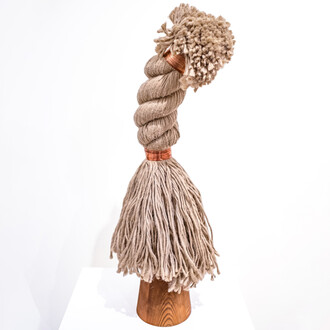Discover how the collapse of the Soviet Union in 1991 coincided with a period of creative innovation in Russia.
Print has become an important component of recent Russian art practice.
The relationship between printing and publishing, strictly controlled under communism, made the new conditions of freedom all the more inviting.
After the Soviet Union was dissolved in 1991, Russian artists who no longer felt defined by resistance to authority could reflect wistfully, ironically or polemically on utopian concepts like the Ideal City or the New Soviet Man. They also brought a fresh point of view to issues informing the western cultural conversation: architecture and urban living, rationally-planned versus informal settlements, the interplay of aesthetics and ideology, new technology and social change, national and other forms of identity, conflict and migration.






![Boat Building near Flatford Mill, John Constable, about 1815, England. Museum no. FA.37[O]. © Victoria and Albert Museum, London](http://media.meer.com/attachments/c123e07fd06fceaf7e5a843fe64087c80b1629ac/store/fill/330/330/cc1b3f37e83b57534b52733394b3a7a0a6e09d5aa8a6d4d51b3f4d8db054/Boat-Building-near-Flatford-Mill-John-Constable-about-1815-England-Museum-no-FA-dot-37-O-c.jpg)









